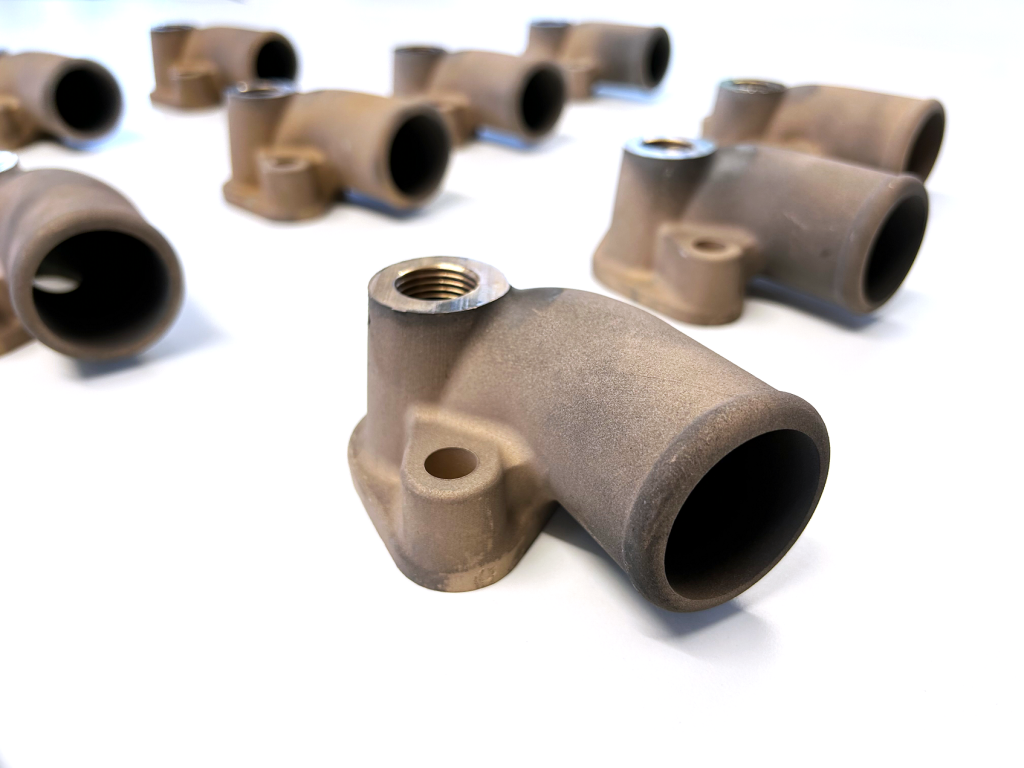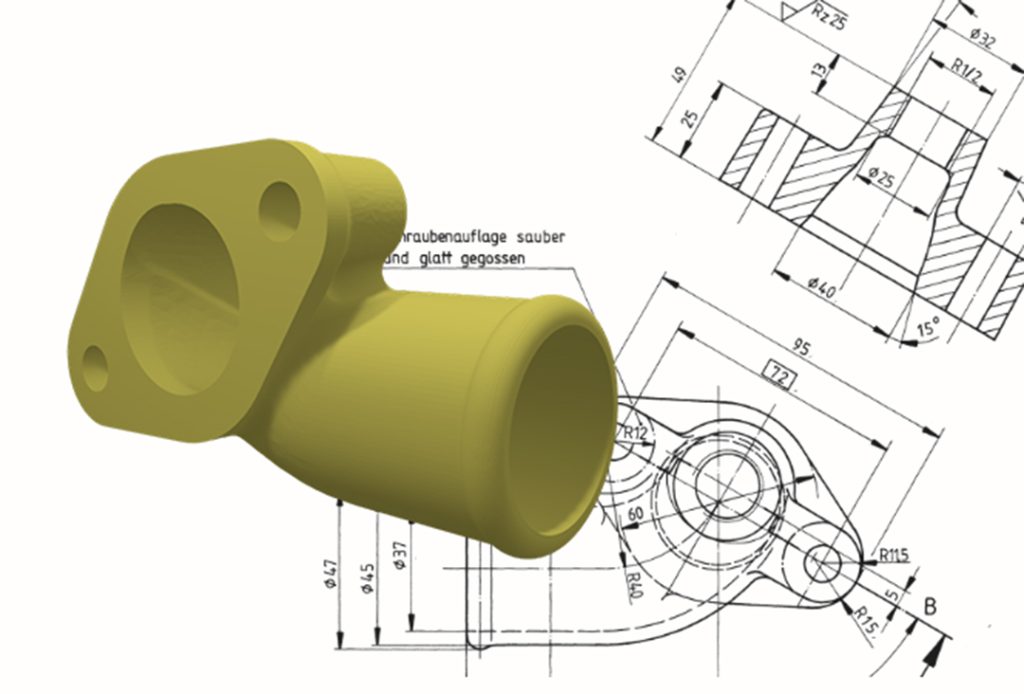Global transport company MAN Truck & Bus (MAN) has integrated Replique’s 3D printing technology into its spare parts production strategy.
Partnering with Replique’s production platform, the company is engaging in collaborative efforts to produce spare parts locally and on demand, thereby eradicating the necessity for maintaining physical inventory. The immediacy became apparent when MAN urgently required a quantity of 10 bronze manifolds, compounded by the unavailability of the conventional casting mold for this essential component. Recognizing the time and cost intensity of traditional procurement methods involving model creation, casting, and machining, MAN sought a more efficient solution, leading to a partnership with Replique.
“The collaboration with Replique was seamless from our initial contact to the moment we received the finished parts. It allowed us to promptly assist our spare parts customers, and we are already in the process of realizing another 3D printing project with Replique,” says Thomas Hauck, Spare Parts Logistics MAN.

3D printing streamlines spare parts production
Utilizing additive manufacturing technology, specifically Selective Laser Melting (SLM), MAN and Replique successfully reproduced the 10 manifolds in original quality with just a 3D model and a manufacturing drawing. Replique, in alliance with material partners, selected a material (m4p Brz10) equivalent to the original. The entire production, from MAN’s inquiry to the delivery of ready-to-install parts, took about 7 weeks. Subsequent tests at MAN’s Central Material Technology department revealed the chosen material exhibited superior technical properties compared to the original, leading to an additional order for 10 units.
One notable advantage of the 3D printed bronze manifolds is their ability to surpass the requirements of the original part. The digital availability of a qualified print file for this specific component ensures that the manifolds can be reordered at any time with consistent quality. MAN incurs no fixed costs for molds and models or storage costs, providing an economically feasible solution for small quantities. MAN’s adoption of 3D printing addresses challenges in spare parts supply within special machine construction, aiming to reduce costs and enhance overall service efficiency.
“The use of additive manufacturing enables companies to overcome traditional production challenges. We are happy to work together with MAN to ensure a reliable and efficient supply of spare parts in the transport and marine sectors,” says Dr. Max Siebert, CEO and Co-Founder of Replique.

Accelerating innovation in the transport sector
Industrial 3D printer manufacturer Essentium received certification from Deutsche Bahn (DB), Germany’s national railway, for its High-Speed Extrusion (HSE) 3D printing platform and materials. Essentium’s technology will be used for 3D printing train parts and tools, allowing DB to enhance fleet availability by quickly replacing key components. Blake Teipel, Essentium’s CEO, emphasized the readiness of additive manufacturing, highlighting DB’s 3D printing of tens of thousands of train parts. DB plans to leverage Essentium’s technology to address supply chain challenges and produce low-run parts on demand, improving efficiency and reducing costs.
Last year, Wibu-Systems, Daimler Buses, and Farsoon Technologies introduced OMNIplus, an online 3D printable parts store for Daimler and Setra buses. Developed with CodeMeter for digital object protection, this collaboration aligns with Industry 4.0’s promise of Manufacturing-as-a-Service. The store offers about 40,000 potentially 3D printable parts, with a selection of 100 initially available. OMNIplus relies on Farsoon Technologies 3D printers or service partners for production, marking a significant step in digital 3D printing.
Read all the 3D Printing Industry coverage from Formnext 2023.
What does the future of 3D printing for the next ten years hold?
What engineering challenges will need to be tackled in the additive manufacturing sector in the coming decade?
To stay up to date with the latest 3D printing news, don’t forget to subscribe to the 3D Printing Industry newsletter or follow us on Twitter, or like our page on Facebook.
While you’re here, why not subscribe to our Youtube channel? Featuring discussion, debriefs, video shorts, and webinar replays.
Are you looking for a job in the additive manufacturing industry? Visit 3D Printing Jobs for a selection of roles in the industry.
Featured image shows the 3D printed bronze manifolds exceed the requirements of the original part. Thanks to the digital availability of production information, they can be reordered at any time with consistent quality. Photo via Replique.



